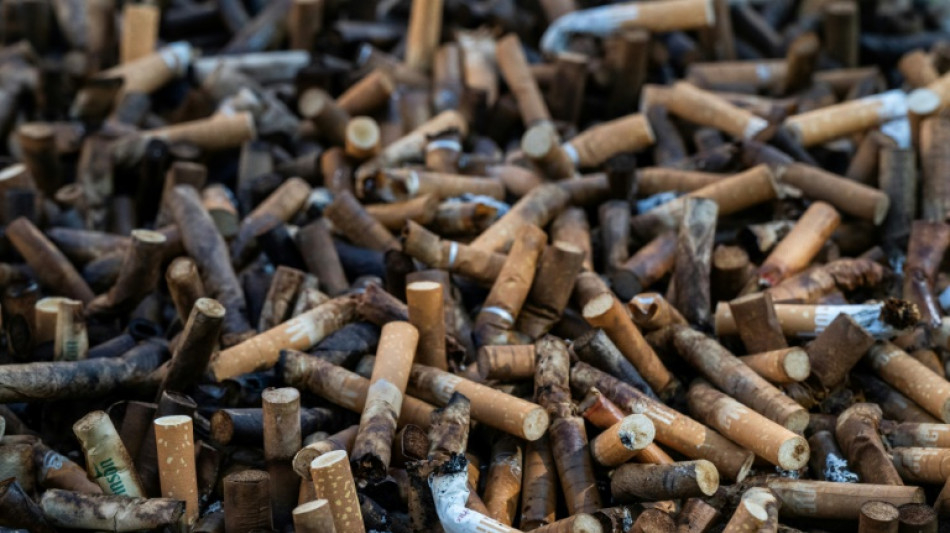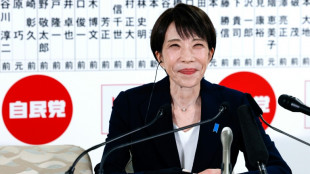

Tobacco conference to weigh up stubbing out cigarette butts
Next week's global conference on tobacco control will consider what to do about the sheer volume of cigarette butts trashing the planet, with some recommending banning them completely.
"The best thing that we could see for the environment is getting rid of filters altogether," Andrew Black, acting head of the secretariat of the World Health Organization Framework Convention on Tobacco Control (FCTC), said Thursday.
Plastic cigarette filters are the world's most littered item, leaching toxic chemicals into the environment and breaking down into microplastics -- while doing very little for the smoker, the secretariat said.
The 11th conference of the parties to the FCTC is being held in Geneva from November 17-22.
The WHO warned Wednesday that the tobacco industry was trying to infiltrate and undermine the conference.
- Litter and pollution -
Black said that, among other topics, the gathering would look at the environmental damage wrought by the tobacco industry and its products.
"An estimated 4.5 trillion cigarette butts are littered each year worldwide, making them the most common form of litter on the planet," he told reporters.
"These discarded butts are toxic and a significant source of plastic pollution, due to their filters, which do not biodegrade."
Furthermore, plastic filters "don't provide any meaningful increase in the safety of cigarettes", he said.
Rudiger Krech, the WHO's environment and climate change chief, said it was "high time to ban those plastics... because they are the highest pollutants in waters" and are "contaminated also with toxicants", he told a press conference.
Ultimately, it will be down to countries what measures they want to take.
To date, around 180 states have ratified the FCTC, which came into effect in 2005.
The landmark treaty brought in a package of tobacco control measures, including picture warnings on cigarette packets, smoke-free laws and increased taxes.
- Death toll -
The conference will take decisions that will set the trajectory of the global tobacco epidemic for future generations, said Black.
He said more than seven million deaths a year were down to tobacco -- an "entirely preventable" body count.
Other major agenda items include the "aggressive marketing" of tobacco products, as well as widespread concerns about the numbers of children being lured in to a life of addiction via new means of getting kids hooked.
More than 100 million people are vaping, including at least 15 million teens aged 13 to 15, according to the WHO's first global estimate of e-cigarette use.
WHO chief Tedros Adhanom Ghrebreyesus said: "Although e-cigarettes are often promoted as safer alternatives to conventional tobacco products, there is no evidence of their net benefit for public health -- but mounting evidence of their harm."
- Infiltration attempts -
Tedros claimed Wednesday that the tobacco industry was motivated by "one thing only: generating profit".
"We are aware of attempts by the tobacco industry to infiltrate and undermine" next week's conference, he told journalists.
Benn McGrady, head of the WHO's public health law and policies unit, said the tobacco industry was "lobbying like crazy" and "trying to sow division".
He said their new products were being marketed as consumer products of harm reduction, but in fact bore characteristics that are "specifically attractive to children", such as bright colours and sweet flavours.
Highlighting the "alarming rise in use among children" of e-cigarettes, he said the industry was launching new products on social media -- "spaces in which children and young people shape their identities".
WHO wants comprehensive bans on tobacco advertising, promotion and sponsorship, including for e-cigarettes and nicotine pouches.
E.Lara--BT




